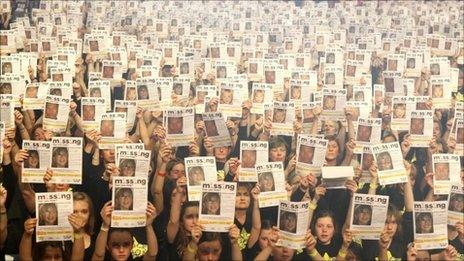'Worrying' rise in Londoners reported missing from care
- Published
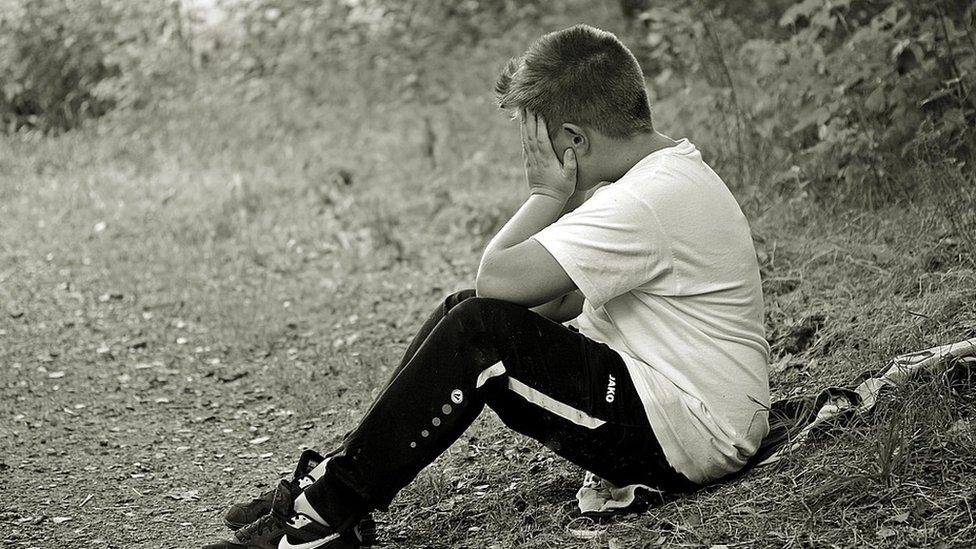
Teenagers make up the largest group of people reported missing in London, figures show
An increase in reports of vulnerable people going missing from care in London is "worrying", a charity has said.
Data obtained by the BBC has revealed that the Met Police handled nearly 17,000 missing from care reports in 2017 - a 34% rise since 2013.
These include children missing from foster homes, and adults disappearing from nursing and residential homes.
Missing People, external said those going missing are at a "high risk of harm".
Over the same time period the number of reports of adults and children with mental health issues going missing increased by 15%.
The majority of missing people are found within the first 48 hours, but some are not, Missing People said.
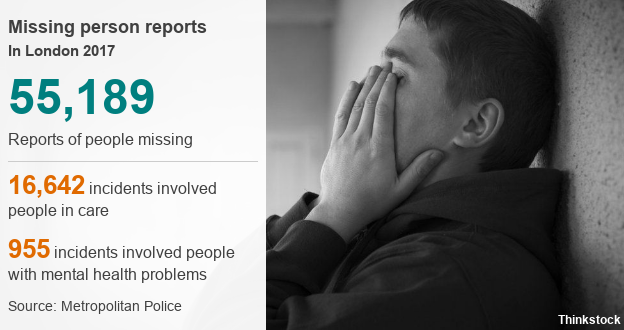
Teenagers make up the largest age group of people who are reported missing in London, figures show.
The number of disappearances reported to police in the 13-18 age category rose from 23,098 in 2013 to 32,811 in 2017 - a 42% rise.
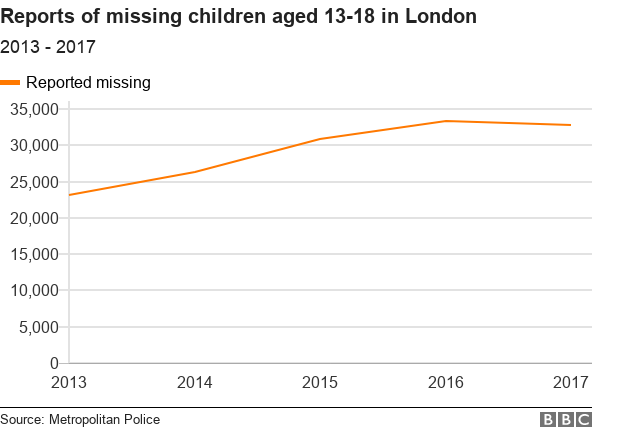
Nearly 5,000 teenagers were recorded as missing in the first two months of 2018.
More than half of them were in care.
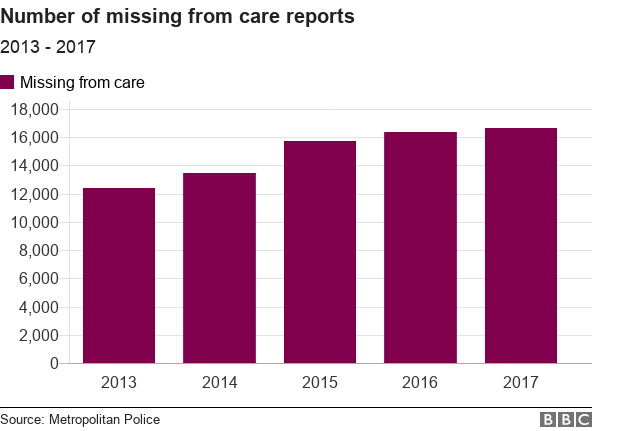
Det Sgt Chris Minnighan, of the Met Police's missing persons unit, said much of the recent rise was likely to reflect London's growing population, improved processes and repeat missing cases.
He believes an over-reliance on police to locate someone on behalf of other agencies - such as care homes, NHS mental health facilities and hospitals - could also be contributing to the rise.
"Police are too often a comfort blanket to social services," he said.
"If their kids haven't come home on time, they will call the police and just have the attitude of 'It's their problem now, I'm going to bed'."
In 2015-16, 19 children's care homes in London accounted for thousands of missing cases, he said.
One individual child was also classified as missing 60 times between 2016-17.
Susannah Drury, of Missing People, said the statistics painted "a worrying picture".
"Those living in care are amongst the most vulnerable in our communities and become even more vulnerable when they are missing as they are hidden from help and at increased risk of harm, including exploitation."
'Cry for help'

"Repeat cases are a clear cry for help", the Children's Society said
Iryna Pona, of the Children's Society, external, said carers will usually do everything possible to find a missing child before calling the police.
She said it is important for carers and police to treat every episode seriously.
"A child going missing repeatedly would be a clear sign that something is wrong rather than a behavioural pattern," she said.
"Repeat cases are a clear cry for help and the child could very well be being sexually or criminally exploited.
"It's very common for children who are placed in homes far away from where they grew up to go missing as they are more likely to miss their family or social circle.
"But, these children are very vulnerable to exploitation due to the fact they are in care, and also because of the distance away from home."

'Never returned'
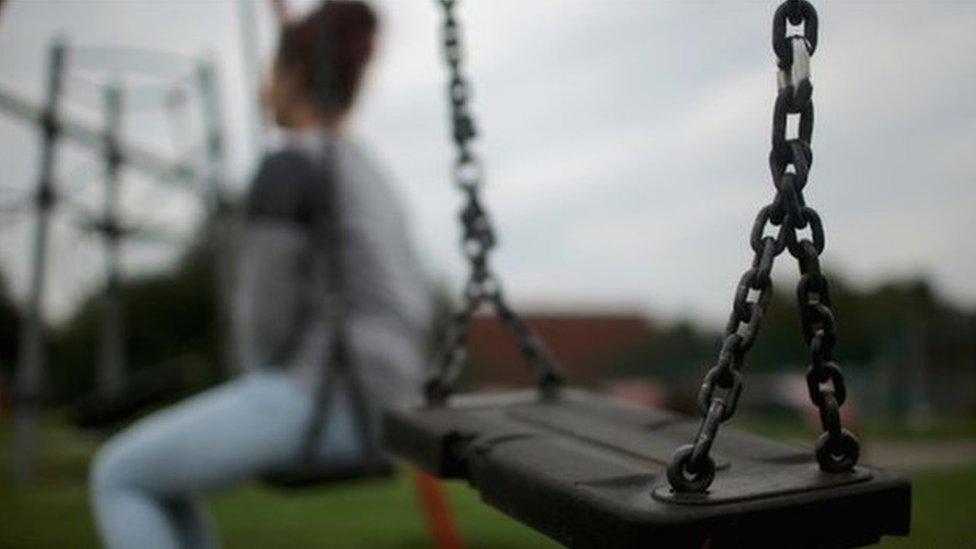
The Met launched the Herbert Protocol which encourages carers to compile information which could be used in the event of a vulnerable person going missing
Jacob - not his real name - from Shoreditch, east London, spent most of his childhood moving between care homes.
The 24-year-old said it "was the norm" for children to run away from their foster homes.
His best friend Rory went missing on his 17th birthday and never returned.
"He was having a tough time settling in due to his anxiety and depression, and then one morning he was just gone," he said.
"I remember the staff being quite frantic, but assumed he would turn up eventually - like all the other kids did.
"I think if the staff had helped him settle in more, or noticed he was unhappy, he would have stayed.
"But he didn't. I haven't heard from him since.
"The not knowing was the worst. Sometimes I used to pray that he wasn't in danger, in jail or even dead."

What happens when someone goes missing?

Everyone missing is divided into low, medium and high risk by police
If a disappearance is out of character - the risk is raised
Common reasons for adults to go missing are stresses at home, relationship problems and financial problems
The most common reasons for children to go missing are abuse, neglect and conflict at home
Source: Missing Persons Bureau
- Published10 December 2015
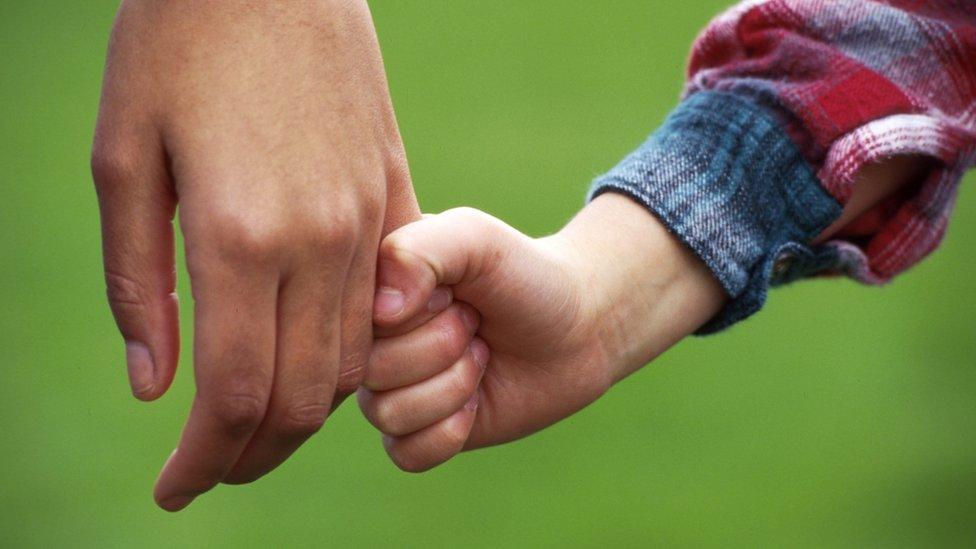
- Published8 February 2013

- Published25 May 2011
